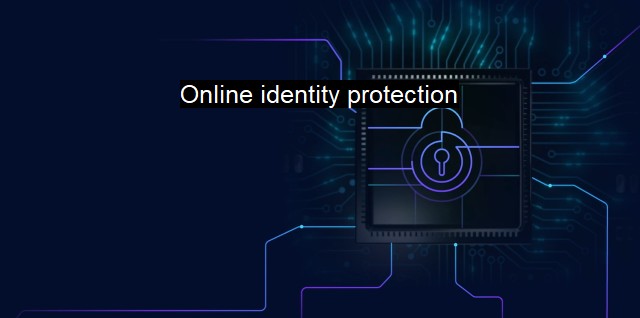What is Online identity protection?
The Importance of Online Identity Protection: Safeguarding Your Personal Information in the Digital Age
Online identity protection is the process of safeguarding an individual's personal data and information from unauthorized access or theft, while accessing the internet. With the increasing use of digital devices and internet services, protecting an individual's identity while being online has become a critical concern for many individuals and organizations.The term ‘identity' refers to a combination of identifiable information like name, date of birth, social security number, financial details, email address, login credentials, online behavior, and browsing history. Online identities are an essential part of an individual's digital life, and if they fall into the wrong hands, the implications could be severe, from financial losses and reputational damages to emotional distress. This is why online identity protection is crucial to protect individual's privacy and security while being online.
Cybersecurity plays a significant role in protecting online identities. It refers to a set of technologies, processes, and practices to prevent the unauthorized access, use or theft of personal information and sensitive data when accessing internet services. Cybercriminals and hackers can exploit vulnerabilities in software and hardware, phishing campaigns, identity theft, and social engineering tactics to steal sensitive data and violate individuals' privacy.
Antivirus technologies are one of the many cybersecurity solutions used to protect individuals from online identity theft. Although anti-virus software was originally designed to detect and delete computer viruses, it has evolved over time to an all-in-one solution, protecting users from multiple online threats, including malware, spyware, adware, trojans, spear-phishing emails, and phishing websites.
Protection against computer viruses forms the core of anti-virus technology, but the outlook has changed in the past few years with hackers shifting their tactics. Of particular concern is ransomware, which locks users out of their computers until they pay a fee, and banking Trojans, which run silently in the background, collecting sensitive data. These particular concerns illustrate the need for advanced cybersecurity protection such as anti-virus technology.
In addition to using anti-virus software, there are other best practices individuals can employ to protect their online identities effectively. These include regularly updating software and operating systems, creating strong, unique passwords for every account, enabling two-factor authentication to protect against credential stuffing, and encrypting sensitive data. Individuals should also be wary of unsolicited emails and messages that require personal information, such as social security numbers, or offer links to questionable websites.
online identity protection is a critical aspect of cybersecurity in today's digital world. It involves safeguarding individuals' personal data, sensitive information, and online behaviors from unauthorized access and potential exploitation. Anti-virus technology can help protect individuals from cyber threats such as computer viruses, ransomware and banking Trojans that can compromise personal data. Individuals must continue to take proactive and preventive measures to ensure their online identities are protected continually.

Online identity protection FAQs
What is online identity protection?
Online identity protection is the practice of safeguarding sensitive information, such as personal data and financial details, from online threats. It involves using cybersecurity measures, such as antivirus software and firewalls, to prevent unauthorized access to your online accounts and protect your identity from being stolen.Why is online identity protection important?
Online identity protection is essential because cybercriminals are constantly targeting individuals and organizations with malware, phishing scams, and other malicious techniques. They can use stolen identities to commit fraud, steal money, or even commit more serious crimes. By taking proactive measures to protect your online identity, you can prevent these threats from affecting you.What are some ways to protect your online identity?
Some ways to protect your online identity include using strong passwords, enabling two-factor| | A | | | B | | | C | | | D | | | E | | | F | | | G | | | H | | | I | | | J | | | K | | | L | | | M | |
| | N | | | O | | | P | | | Q | | | R | | | S | | | T | | | U | | | V | | | W | | | X | | | Y | | | Z | |
| | 1 | | | 2 | | | 3 | | | 4 | | | 7 | | | 8 | | |||||||